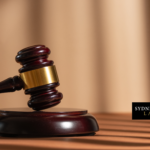Sniffer Dogs, Searches and Your Rights at Mardi Gras

With the Gay and Lesbian Mardi Gras Parade rocking Sydney today, we’ve compiled some basic information about police searches to help you have a blast without your rights being violated:
When can police search me?
It’s a sure bet that police will have sniffer dogs patrolling in and around the Mardi Gras parade today, and also at the after party. If police legally search you and find drugs, you could face stiff penalties.
That being said, police must have a ‘suspicion on reasonable grounds’ that you are in possession of something illegal, or have committed an offence or are about to commit an offence, before they are legally permitted to search you – they can’t just search you because they feel you look a little shady, or because they feel like hassling you.
It’s important to know that simply being present at the Mardi Gras, or acting a little fidgety or nervous, does not entitle police to search you. And although there has been no authoritative case law in the higher courts on the subject, there is a strong argument that a positive indication by a sniffer dog is not enough, by itself, for police to form a reasonable suspicion – there must be something more.
If police cannot prove that they had the required ‘reasonable suspicion’, the search will be illegal and any evidence of drugs found upon you may be inadmissible in court.
If a police officer says they intend to search you, you should remain calm, polite and cooperative. If you resist or thrash out, you could be charged with resisting arrest or even assaulting police. If you use profanity, you may be fined or arrested for offensive language charges. So be smart, keep your cool and don’t give them an excuse.
If you are about to be searched, make sure you note the time, place and the officer’s name, rank, station and stated reasons for searching you. If they don’t have a name of their badge, note the badge number instead. These details will be important if you decide to file a complaint against the officer. And if possible, you should ask a mate to film the procedure – without getting in the face of police.
What are my rights when searched?
There are limitations on what police can do, even if they have a ‘reasonable suspicion’ to search you. Police are required to:
- Conduct the least invasive kind of search practicable in the circumstances. A strip search can only be conducted in certain limited circumstances where no other search will do, and police must follow strict rules if they decide to strip search you; and
- Conduct the search in a way that provides you with reasonable privacy and as quickly as is practicable;
During the search the police are not allowed to:
- Ask you to remove any clothing that is not necessary;
- Search any body cavities;
- Search your genital area. or breasts (for female or female identifying trans and intersex people), unless it is necessary; or
- Question you while you are being searched.
If a police officer believes you are in possession of drugs, or anything else dangerous or illegal in your mouth or hair, they are allowed to ask you to open your mouth or shake your hair.
For any other search of a body cavity, police need to have your consent or a court order.
What happens after the search?
Police have the right to ask for your name and address.
You should provide these details, but do not need to tell them anything else – and it is best to politely decline to answer any further questions as your answers could be used against you later.
Your details, and the police version of the encounter, will be entered onto the COPS database.
What happens if the police find drugs on me?
If you are found to be in possession of drugs and charged, you should continue to remain silent and contact an experienced criminal defence lawyer as soon as possible; even if you wish to ultimately plead guilty.
Several reputable criminal law firms offer a free first conference where you can get advice about your options, the best way forward and the likely outcome, even if you wish to represent yourself in court.
Depending on what you are caught with, police may issue you a caution, or a court attendance notice requiring you to attend court at on a specific date and time. The fines in NSW for possession of drugs can be up to $2200, and the offence carries a maximum penalty of 2 years in prison.
However, a good lawyer will give you the best possible chance of avoiding a criminal record and fine altogether, so you can move on with your life.






